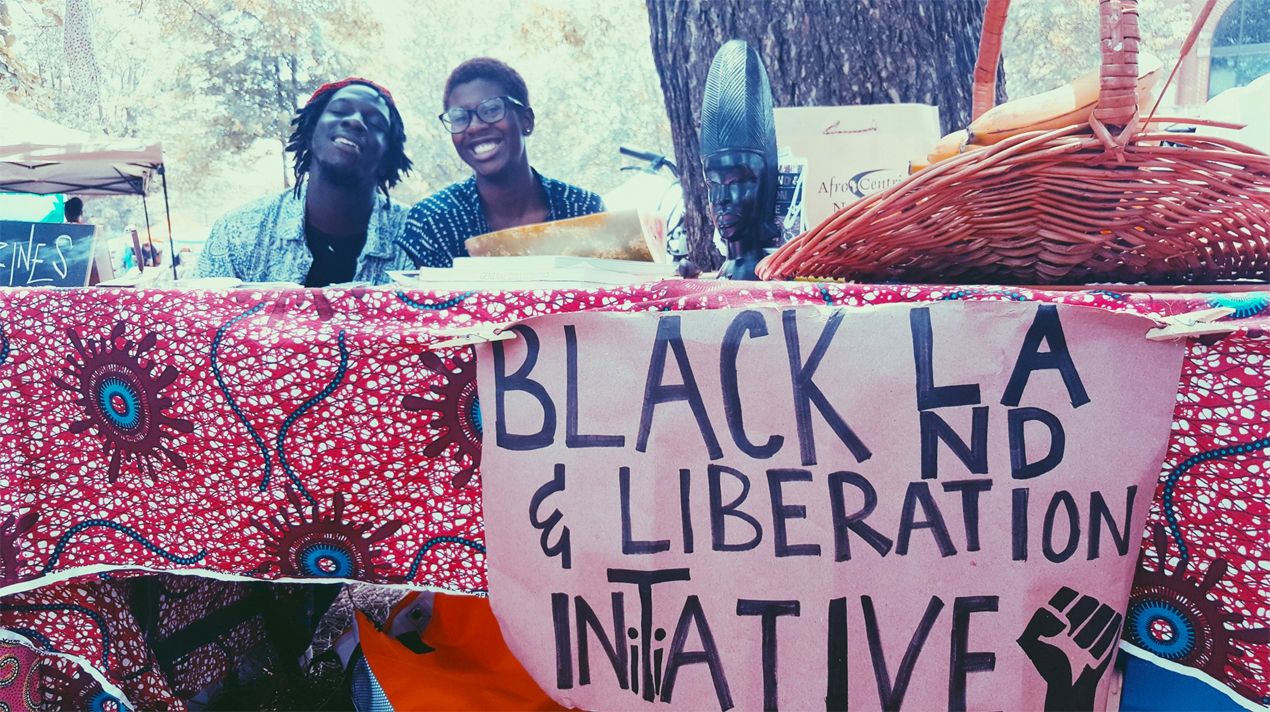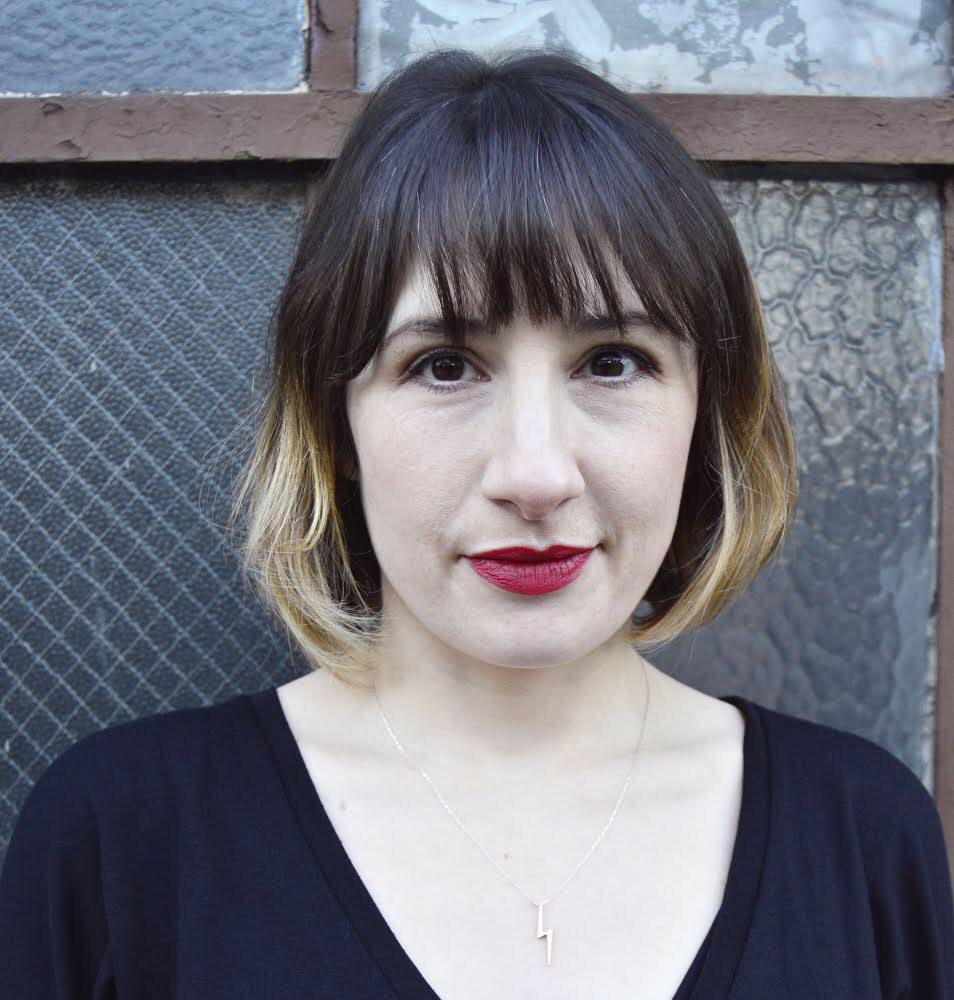
Photo from Juneteenth #40acres40cities action in Atlanta, Georgia. (Photo courtesy of Twitter @ATLisReady)
This Q&A is part of Sarah Jaffe’s series Interviews for Resistance, in which she speaks with organizers, troublemakers and thinkers who are doing the hard work of fighting back against America’s corporate and political powers.
Juneteenth is not a federal holiday — but many believe it should be. It’s the day on June 19, 1865, that news of emancipation reached the last group of enslaved people in Galveston, Texas. That was two-and-a-half years after President Lincoln issued his Emancipation Proclamation, which made slavery illegal.
To mark the day, and its unfulfilled promises, a group of organizers planned a day of action on Monday, June 19. In 40 acres across 40 cities, black people took nonviolent direct action to occupy and reclaim spaces such as abandoned schools and vacant lots, with the goal of bringing these spaces back to the community.
The action makes reference to Union General William T. Sherman’s 1865 field order named “40 acres and a mule” — the unkept promise that newly freed slaves receive 40 acres of land, and a mule to work it, per family, to be taken from confiscated Confederate land.
On Monday, from Atlanta to Oakland, Chicago to New Orleans, anchored by the BlackOUT Collective and Movement Generation, black Americans reclaimed vacant lots and abandoned buildings, bringing communities together to discuss the issues of land, liberation and reparations. Chinyere Tutashinda, co-director of the BlackOUT Collective, talked to Sarah Jaffe about his organization’s goals for this year’s Juneteenth.
Sarah Jaffe: For people who don’t know about Juneteenth, can you tell us, first of all, the history of the day?
Chinyere Tutashinda: Juneteenth is a very interesting and sad story all wrapped in one. It celebrates and commemorates the day when a group of enslaved black folks in Texas found out that slavery was officially over and they could be a part of the Union army [and fight against the Confederate Army during the Civil War.] It wasn’t to the benefit of slaveholders to actually communicate that black people had been emancipated. So, it took months and months of networks of enslaved folks to be able to get that message to them.
SJ: Tell us about the actions that are taking place and the significance of the plan that you guys went forward with.
— Chinyere Tutashinda
CT: Movement Generation approached us [to collaborate] and we decided to focus some of our work on black liberation and what that entails. …This includes thinking about black liberation tied to land and to reparations. If we are talking about freedom in this country, then we also need to be having a concrete discussion about what’s owed to people who have a history of enslavement.
SJ: Talk a little bit more about the actions and the places where these are taking place.
CT: Actions are going to take place across the country in a variety of different ways. Some people are looking at long-term occupations and creating community spaces. Some are day-long actions where people are holding conversations about the intersection of reparations, land and black liberation. They’ll all be different, but the goal is to be able to take up space, build communities and have good relationships with each other and with the community at large.
Black Land Liberation Initiative liberating land for Black lives on 76th and MacArthur @DarwinBondGraha @daviddebolt @henrykleeKTVU pic.twitter.com/Vc4tqeWzQ5
— Cat (@CatsCommentary) June 19, 2017
We've been throwing down with the Black #LandandLiberation Initiative at #JuneteenthFestivalATL. #40Acres40Cities pic.twitter.com/XV0wh0cH1e
— ATLisReady (@ATLisReady) June 18, 2017
SJ: There were a few spaces held like this last summer in Chicago and in Los Angeles.
CT: Yes, there were. We helped with the freedom actions last summer that were in response to the murder of Alton Sterling, a 37-year-old black man who was killed by Baton Rouge police in July 2016.
One of the actions was in Chicago’s Freedom Square by the Black Youth Project and other organizations around the idea: “What does it mean to hold space?” They held the event at the place where a group of black people had been tortured and imprisoned decades ago by Chicago police. Last year, they won their case and were awarded reparations.
SJ: In a time when Donald Trump is president it can seem like everything is short-term resistance. Talk about doing radical actions and making radical demands in this moment.
CT: There has been a huge upheaval in this country around the results of the election and people going, “What to do?” and “What does it mean?” There are hundreds of thousands of newly activated people. It is really critical that we continue to remember that the struggle is long and that it is one that requires us to not only react to things happening at the federal, state or local government level, but also requires us to really think about how we are in relationships with each other and with the land around us, with a clear understanding of our country’s history of oppression. This is one of the reasons why the Juneteenth actions in particular are not just about the current moment, but are rooted in history and rooted in land.
SJ: Tell us a little bit more about the work of the BlackOUT Collective.
CT: We started in 2014, literally in front of the Ferguson Police Department. We were a group of trainers — some from the Ruckus Society, which is a nonviolent direct action training group, and some from the Center for Story-based Strategy. We were sitting there and as we were trying to come together as a group of black trainers, realizing that we’d reached out to a lot of people we knew who had done direct actions, but there weren’t that many who identified themselves as direct action trainers as black people. We wanted that to change drastically. And understanding that, as black people, we have been using direct action tactics for hundreds of years fighting for our own liberation.
So, we started there and have continued to grow. Over the course of two-and-a-half years we have trained almost a thousand black people in direct action tactics. We are slowly growing and building our network through our action practitioners and are going to have our first all-black practitioner camp and visioning session this summer. We have also worked really closely with leadership at the Movement for Black Lives.
SJ: What do you think has changed in terms of the Movement for Black Lives in a world where Trump is president?
CT: There are a lot of people who are out on the streets… I think there is a lot of interest and a lot of people who have been newly politicized and woken up to the fact that Trump is our president. But, when I think around what has been going on within the Movement for Black Lives and organizations that are part of that constellation — because this is not new for us and because a lot of folks, particularly those in the South, have been living under conditions very similar to the ones that Trump is trying to enact nationally — there was just a different level of “What does that mean for us?”
People have been really focusing on strengthening their organizing, strengthening their base building and trying to build and implement strategy in different ways. People are noticing there are less people on the streets, but there are not necessarily less people in our organizations or less people doing local work. I think as organizations are building and slowly growing, the work that you will see come into fruition will be in the next year or so.
SJ: How can people keep up with you and the BlackOUT Collective and find out more information on the Juneteenth actions?
CT: There are a couple of ways. We have our website, BlackOUTCollective.org. We are also on Twitter @blackoutcollect and on Facebook it’s the BlackOUT Collective. People can also check out the Black Land and Liberation Initiative.
Interviews for Resistance is a project of Sarah Jaffe, with assistance from Laura Feuillebois and support from the Nation Institute. It is also available as a podcast on iTunes. Not to be reprinted without permission.




